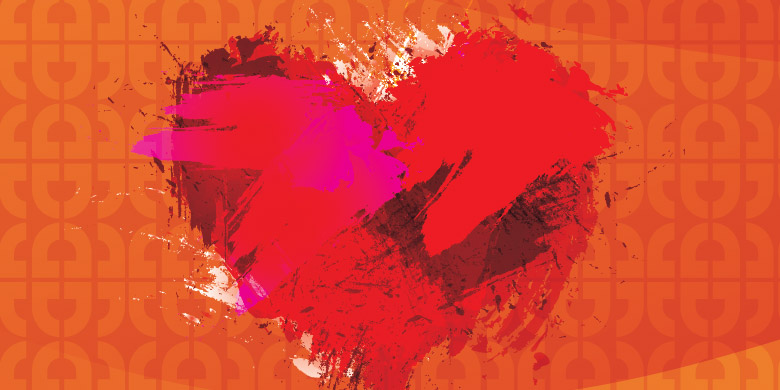Last updated on February 8, 2023
Trigger warning: This article, or pages it links to, contains information about dating violence, which may be triggering to survivors.
It will soon be Valentine’s Day, a time of romantic gestures like giving cards, candy and flowers. However, some romantic relationships may not turn out the way we expect. We may find ourselves in an unhealthy relationship and wonder if we missed warning signs indicating that something was not right.
As part of Teen Dating Violence Awareness month, the Dallas College Title IX Office and CAASA (the College Alliance Against Sexual Assault) reached out to Vanessa Baum, Director of Prevention Education at The Family Place, for help identifying signs that our developing relationship may be more harmful than romantic.
Vanessa, what are some warning signs of an unhealthy relationship?
Many warning signs are characterized by poor or nonexistent communication, distrust and control. This includes behaviors such as checking your phone, email or social media accounts without your permission; constantly calling or texting to “check in”; and accusations of cheating. An unhealthy partner may also try to isolate you from family and friends, monopolizing all your time. This may seem romantic in the beginning but can leave you without a support system when the relationship turns ugly.
Why do people sometimes stay in unhealthy relationships, even after they’ve noticed warning signs?
For one, it’s not always as easy as walking away. A partner may threaten to hurt you, your loved ones or themselves if you try to leave or report their behavior. Shared housing, finances or children can also make it more complicated to cut ties with an abusive partner. Many people genuinely love their abusive partner and hold onto the hope that their behavior will change. Survivors of unhealthy and abusive relationships often experience shame and fear around being in that situation which makes it harder to get help.
What are some of the signs of a positive, healthy relationship?
There are five essential ingredients for a healthy relationship: Communication, Respect, Equality, Safety and Trust (or CREST). Without all five of those qualities, a relationship probably isn’t healthy. And this applies to all kinds of relationships, not just romantic ones.
Relationships can change over time or fluctuate between “healthy” and “less than healthy.” Once a relationship has become unhealthy, how likely is it that it will change back to a healthy one?
Unhealthy or abusive behaviors don’t go away on their own and typically get worse over time. You can think of relationship behaviors as a spectrum:
- “Green light” behaviors are healthy. They make you feel safe and supported.
- “Yellow light” behaviors are unhealthy. Some elements of CREST may be missing, but yellow light behaviors can often be addressed with good communication skills. An example would be that your partner consumes all your free time but after a conversation about your need to spend time with friends and family, they respect that boundary and support you spending time away from them.
- “Red light” behaviors are abusive, and the relationship is no longer safe. If our yellow light example turned into a red light example, you partner might forbid you from spending time with friends or family, or react so negatively when you do spend time with them that it discourages you from doing so in the future. Those responses are an attempt to manipulate you into isolation from your support system.
Are there specific tips for ending an unhealthy relationship?
Ending a relationship with an abusive partner can be the most dangerous time in a relationship. An abusive partner may not accept your decision to end things, and they may try different tactics to maintain control over the relationship through threats or insults.
You will need to consider whether it is safe to break up in person, or if the threat of violence is enough that you should end things over the phone. Breaking up in a public setting near other people may also be an option if you think the conversation won’t be received well. No matter how you decide to break up, make sure a friend or family member knows what you are planning so they can check in and make sure you are safe.
To talk through your options and create a safe breakup plan, you can always call The Family Place 24-hour hotline (214-941-1991) or use a chat service like Love is Respect by texting LOVEIS to 22522.
Campus Events
Join us for these Feb. 14 events hosted by the College Allegiance Against Sexual Assault (CAASA) with support from Title IX.
Valentine’s Day Student Club Fundraiser
Healthy vs. Unhealthy Relationships
Resources for Reporting and Support
Report an incident of sexual harassment, sexual assault, stalking, dating violence or domestic violence (collectively, “sexual misconduct”) involving a Dallas College student or employee to the Title IX Team:
- Call: 972-860-3980 (voicemail available 24/7)
- Email: TitleIX@DallasCollege.edu (available 24/7)
- Visit: DallasCollege.edu/TitleIXReport (available 24/7)
Report to Dallas College police:
- Dial 972-860-4290 from a cell phone or non-campus phone
- Dial 911 from a campus phone (only)
- To report to your local city police department, dial 911 from a cell phone or non-campus phone
Dallas College also offers free mental health counseling services to currently enrolled students age 18 or older. To contact Dallas College Counseling and Psychological Services, or to schedule a virtual or in-person appointment with a counselor:
- Call 972-669-6400 8 a.m.-10 p.m. Monday-Thursday and 8 a.m.-5 p.m. Friday.
- Email counseling@DallasCollege.edu
- Schedule an appointment in the Navigate app
For 24-hour emergency mental health assistance, call a 24/7 crisis hotline:
- Metrocare: 214-743-1215
- NTBHA (North Texas Behavioral Health Authority): 866-260-8000
Additional community resources are available at www.DallasCollege.edu/CAASA.
